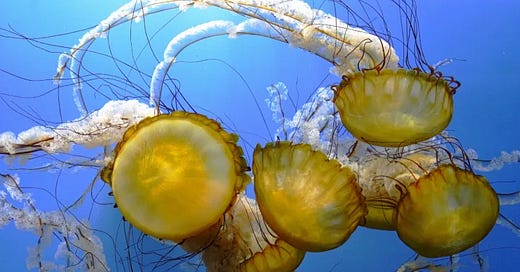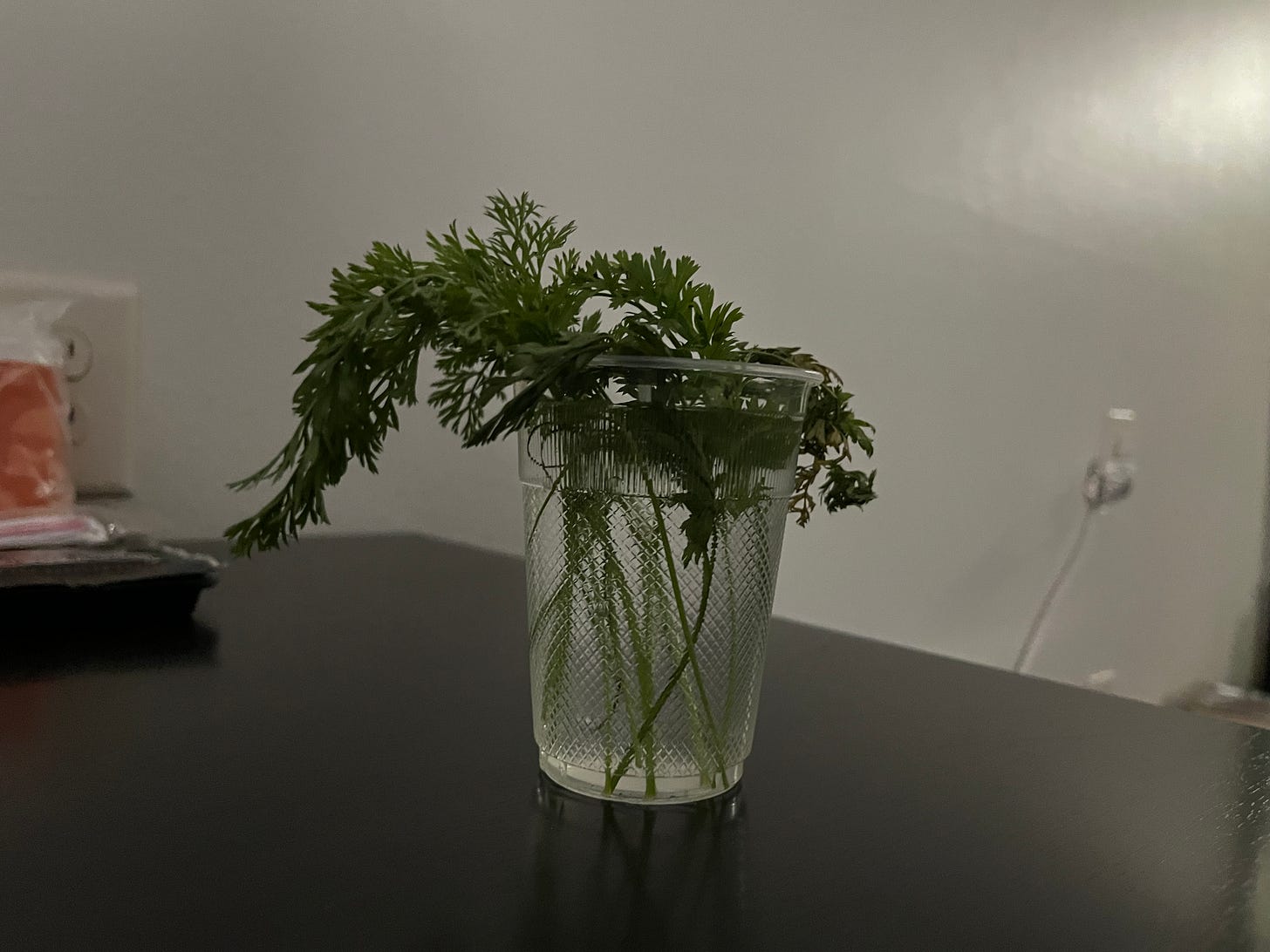My younger two kids are head over heels for jellyfish.
We did a lot of travel up and down the Northeast corridor this summer, and every time we were in or near Baltimore, they asked to visit the aquarium and especially the jellies exhibit, to the point that we really should have gotten a family pass. (My youngest would be glad that I used the correct term, jellies, since they aren’t actually fish.)
In the main section of the aquarium, there’s a place where you can gently touch the tops of a tank full of moon jellies. Take a couple of fingers, the docent tells you, and slowly brush across the dome of the jelly, which feels soft and supple and alien. The kids are 15 and 17 and are never too cool to do this.
Later it’s past the dolphins and on to Jellies Invasion, an exhibit with several species, gliding, dancing, and undulating to an ambient soundtrack. In addition to being a foe of humans thanks to their painful stings, jellies are also exploding in numbers because of the changing climate. Thanks to “massive swarms, voracious eating habits and habitat invasions, these animals are changing the balance of the Earth's aquatic ecosystems,” according to the aquarium’s website.
The subtext of the exhibit annoys my son in particular, as if the jellies are to blame for the trouble they cause. But they’re just doing what they do. They’re surviving the ways they know how. They’re bobbing along, being themselves.
These kids come by their devotion for jellies honestly. Their mother has a stubborn affection for animals that others like to fear or revile. Snakes. Bats. Spiders. But I also wonder whether the psychological struggles they have both experienced, often feeling out of place and foreign in the world, helped fuel their love of jellies. They are both abundantly sensitive. No tough exoskeleton here, just the thinnest of membranes between them and the world. It’s difficult for them both, to be so vulnerably connected. But it makes them beautiful. It leads me to wonder what I have sacrificed along the way in order to function so competently, sometimes it even seems naturally, in this dysfunctional world we inhabit.
All of this is why, as this article finds its way into your inbox or in the Substack app on Friday, I’m with my teens in North Carolina, on a break after the first quarter of school, picking up a Russian tortoise my middle kid is adopting. Why North Carolina? There are tortoises closer to home. Because that’s where Chip is. Chip has been at the reptile rescue for more than a year, probably because he has a gash in his shell. He’s not a perfect specimen, and that’s why Mel wants him so badly, and why as an adult Mel will probably adopt geriatric cats rather than the rambunctious kittens so many people clamor for.
Mel has been preparing for Chip’s arrival for several weeks—building an enclosure, researching basking lamps, even repotting some purchased plants in organic soil just in case they were grown using pesticides that would be harmful for Chip to ingest. I still have a few carrots left in my container garden, so I picked them the other morning, saving the tops so we could bring them here for Chip to snack on during the drive home. Mel made sure to put them in water in the motel, to freshen them up before we get him first thing Friday.
“Hard problems help make good people,” Mel said the other day, unprompted. It would be violent of me to foist that theology upon others. Suffering is not redemptive, my kid would agree, and not everyone is made stronger by adversity. But pain does build compassion.
“The most beautiful people we have known are those who have known defeat, known suffering, known struggle, known loss, and have found their way out of the depths,” writes Elisabeth Kubler Ross. “These persons have an appreciation, a sensitivity, and an understanding of life that fills them with compassion, gentleness, and a deep loving concern. Beautiful people do not just happen.”
They don’t happen overnight, either. But oh, when they begin to emerge…
~
What I’m Up To
On Monday, I celebrated a milestone with my supporting subscribers. You can be a part of it too, at a new discounted rate.
I’m teaching a class at Potomac Presbyterian Church on Sunday morning 10/29 at 9:45.
~
Link Love
Molly Baskette spoke beautifully into these days.






A wise mentor told me about walking the beach with her young daughter collecting shells. At the end of their walk they spread their collection on the sand. My friend noticed her daughter’s shells were all broken. Surprised she asked, “why did you gather all broken ones?” Her daughter responded, “Someone has to love them too...” Thank God!
Resonated deeply with me; thank you!